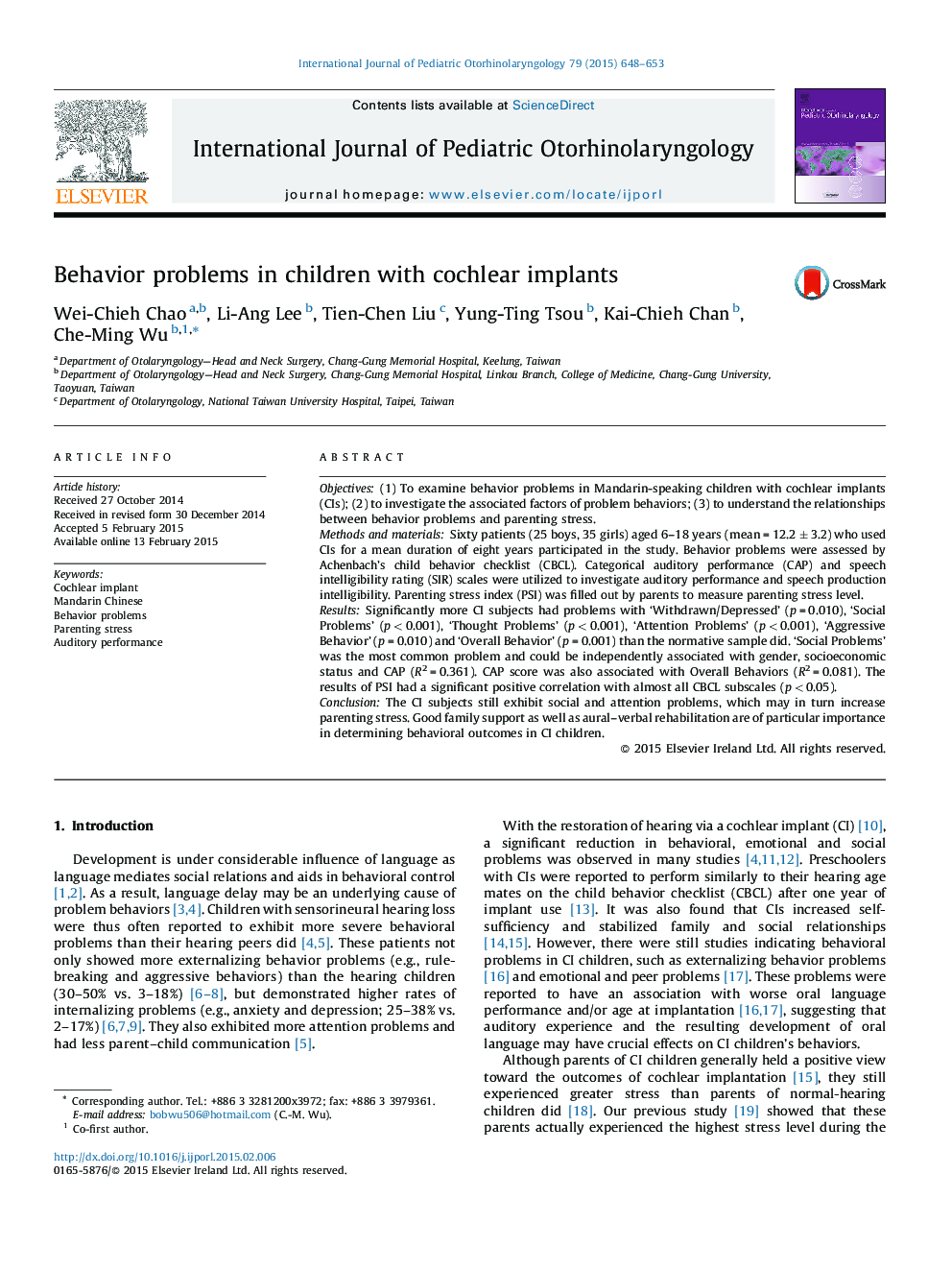| Article ID | Journal | Published Year | Pages | File Type |
|---|---|---|---|---|
| 4111877 | International Journal of Pediatric Otorhinolaryngology | 2015 | 6 Pages |
Objectives(1) To examine behavior problems in Mandarin-speaking children with cochlear implants (CIs); (2) to investigate the associated factors of problem behaviors; (3) to understand the relationships between behavior problems and parenting stress.Methods and materialsSixty patients (25 boys, 35 girls) aged 6–18 years (mean = 12.2 ± 3.2) who used CIs for a mean duration of eight years participated in the study. Behavior problems were assessed by Achenbach's child behavior checklist (CBCL). Categorical auditory performance (CAP) and speech intelligibility rating (SIR) scales were utilized to investigate auditory performance and speech production intelligibility. Parenting stress index (PSI) was filled out by parents to measure parenting stress level.ResultsSignificantly more CI subjects had problems with ‘Withdrawn/Depressed’ (p = 0.010), ‘Social Problems’ (p < 0.001), ‘Thought Problems’ (p < 0.001), ‘Attention Problems’ (p < 0.001), ‘Aggressive Behavior’ (p = 0.010) and ‘Overall Behavior’ (p = 0.001) than the normative sample did. ‘Social Problems’ was the most common problem and could be independently associated with gender, socioeconomic status and CAP (R2 = 0.361). CAP score was also associated with Overall Behaviors (R2 = 0.081). The results of PSI had a significant positive correlation with almost all CBCL subscales (p < 0.05).ConclusionThe CI subjects still exhibit social and attention problems, which may in turn increase parenting stress. Good family support as well as aural–verbal rehabilitation are of particular importance in determining behavioral outcomes in CI children.
